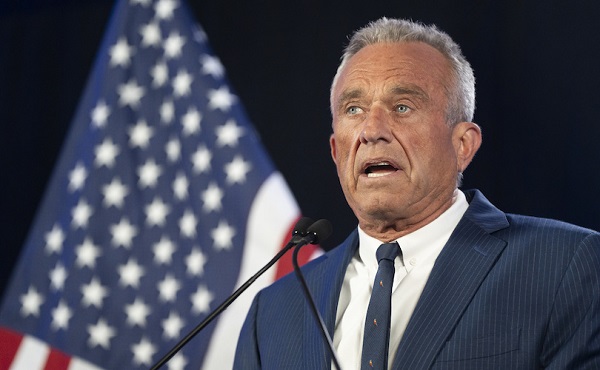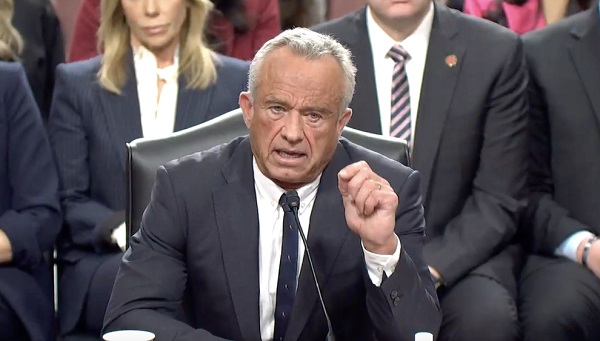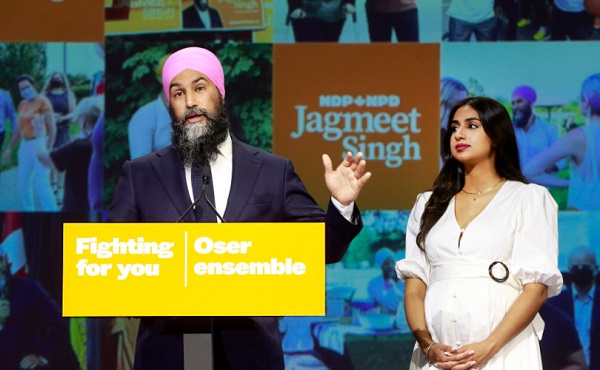By Emily Mangiaracina
During a Senate hearing yesterday, Kennedy noted that a CDC study found a 260% higher rate of autism in boys who got the MMR vaccine.
A Department of Health and Human Services (HHS) report commissioned by Robert F. Kennedy Jr. indicates Tylenol use during pregnancy is one factor contributing to the U.S. autism epidemic, according to media reports.
Sources close to the matter said low levels of folate as well as the use of the acetaminophen-based drug will be named in the forthcoming HHS autism report as among potential causal factors behind autism.
Kennedy, secretary of the HHS, told Fox and Friends last week that his agency was about to reveal causes of autism and make government regulation recommendations accordingly. His remarks suggest that mothers’ Tylenol use and folate deficiency will be among a multitude of factors cited in the HHS report.
“There is not a single cause, there are many, many — there’s an aggregation of causes,” said Kennedy. “We are now developing sufficient evidence to ask for regulatory action on some of those, or recommendations.”
He noted the documented explosion in autism rates, which have gone from less than one in 10,000 in 1970 to one case for every 31 Americans, according to the Centers for Disease Control and Prevention (CDC). Even if autism is over-diagnosed, a significant portion of these children are severely impaired, indicating a real, notable increase in the disorder.
“Most cases now are severe,” Kennedy said in April while discussing the results of a CDC autism survey. He explained that “25% of the kids who are diagnosed with autism are non-verbal, non-toilet trained,” and have other dysfunctional behaviors typical of severe autism like head-banging.
During a Senate hearing on Thursday, Kennedy also pointed to a link between the Measles, Mumps, and Rubella (MMR) vaccine and autism.
“In 2002, CDC did an internal study of Fulton County, Georgia, children, and looked at children who got the MMR vaccine on time and compared those to kids who got them later. The data from that study showed that black boys who got the vaccine on time had a 260% greater chance of getting an autism diagnosis than children who waited,” Kennedy explained.
“The chief scientist on that, Dr. William Thompson, the senior vaccine safety scientist at CDC, was ordered to come into a room with four other co-authors by his boss, Frank DeStefano, who’s the head of the Immunization Safety Branch, in order to destroy that data,” said Kennedy.
This story was divulged by CDC whistleblower Dr. William Thompson, one of the co-authors who intentionally omitted the 2004 study data showing the MMR vaccine-autism connection in black children.
While an evolving, broadening definition of autism may contribute to increased diagnoses, Kennedy believes “environmental toxins” have contributed to a full-blown epidemic of autism.
“We’re going to look at vaccines, but we’re going to look at everything. Everything is on the table, our food system, our water, our air, different ways of parenting, all the kind of changes that may have triggered this epidemic,” the HHS head previously told Fox News.
“It is an epidemic,” Kennedy insisted. “Epidemics are not caused by genes. Genes can provide a vulnerability, but you need an environmental toxin.”
“We know that it is an environmental toxin that is causing this cataclysm,” said Kennedy, “and we are going to identify it.”


















